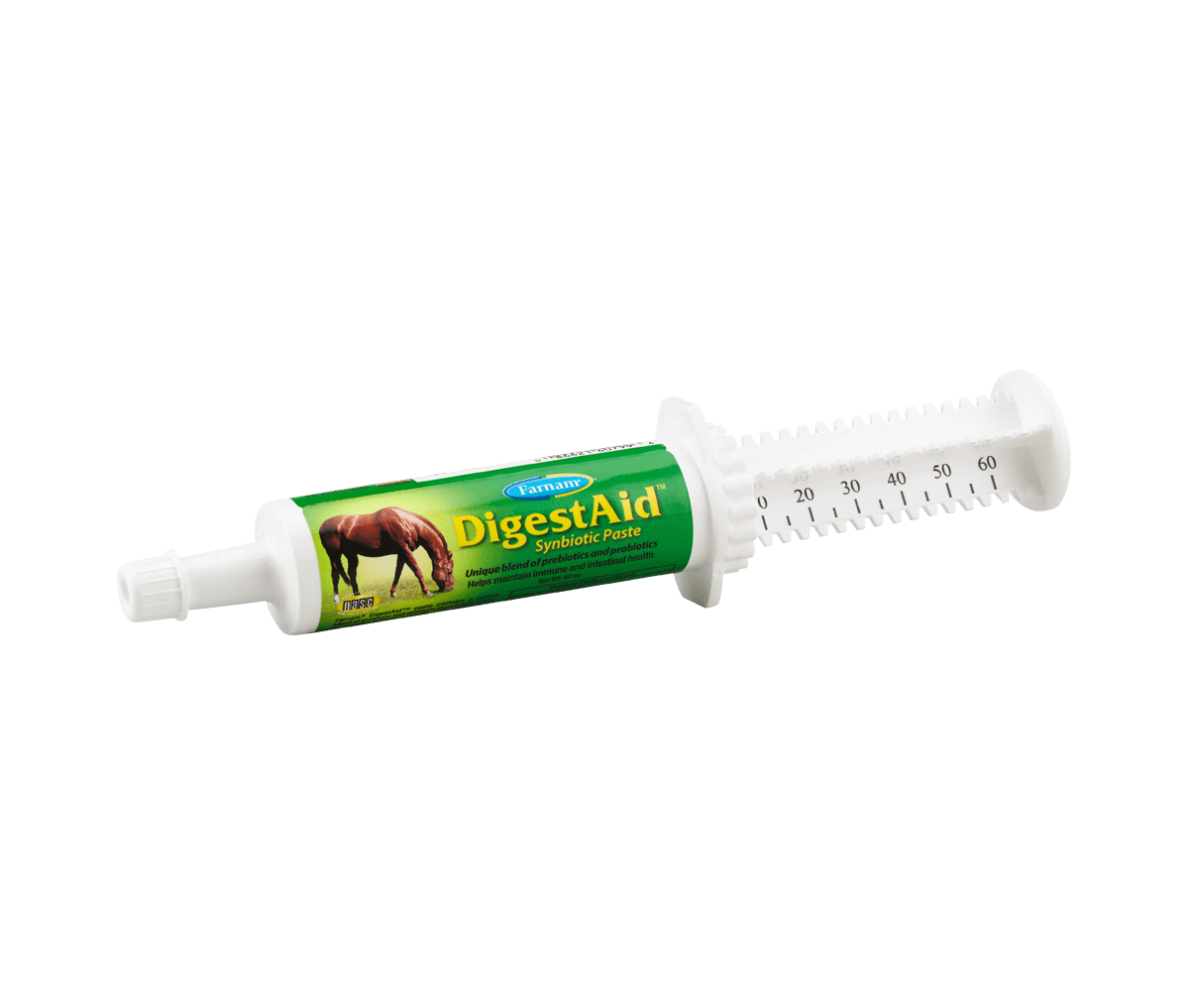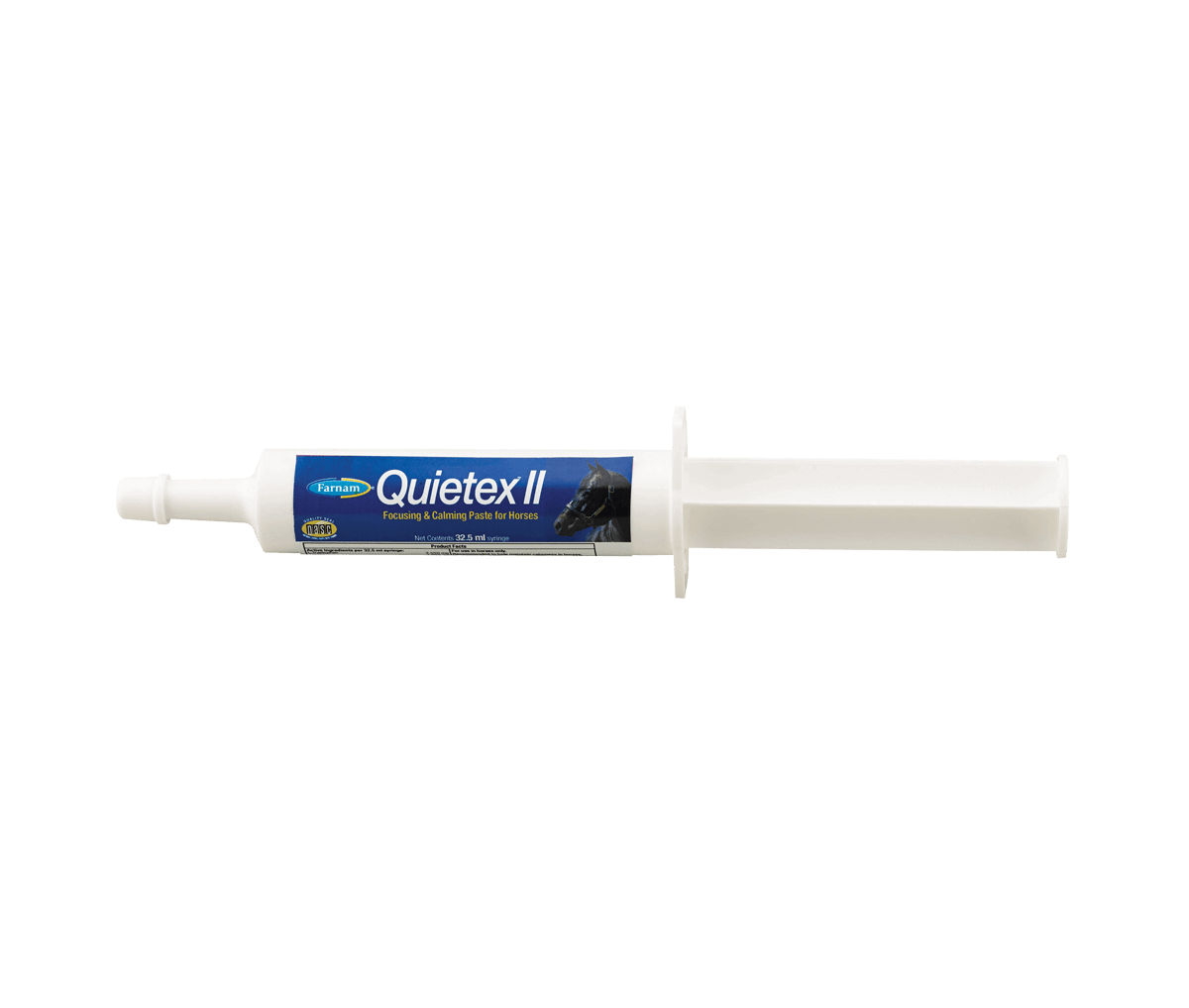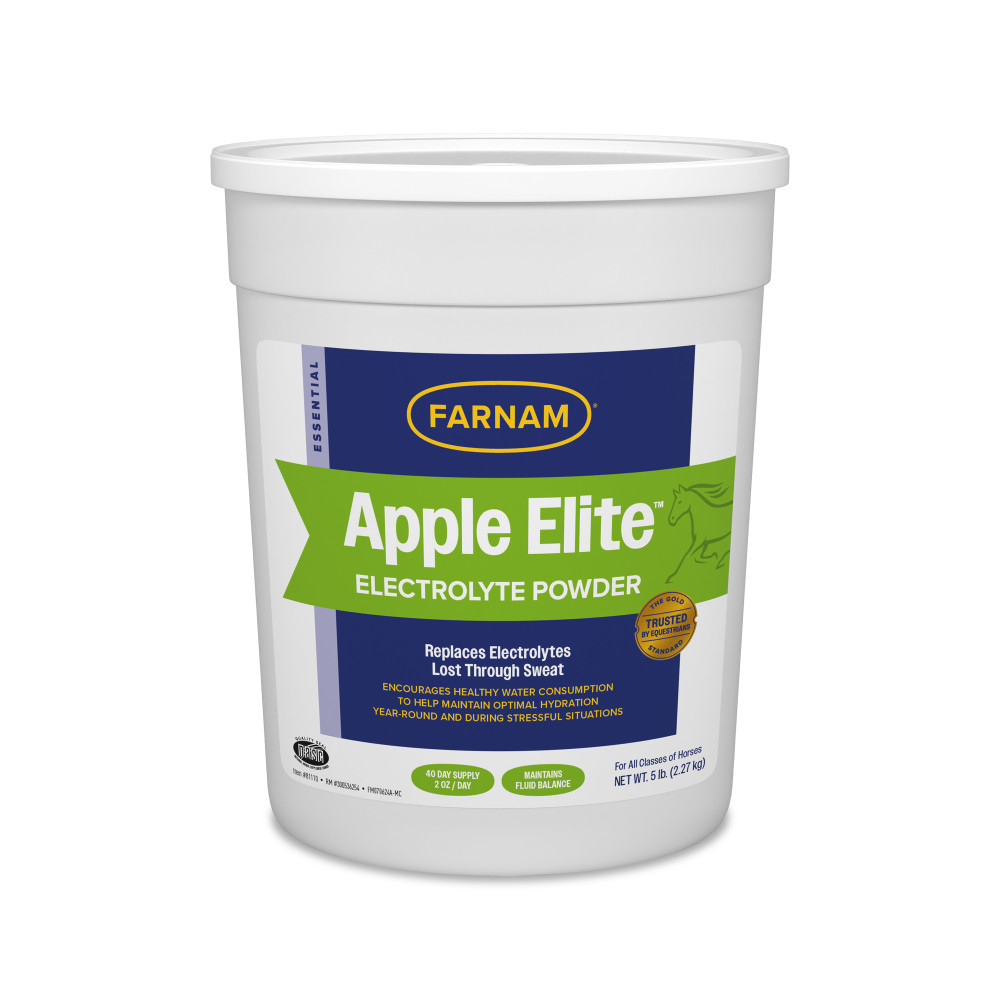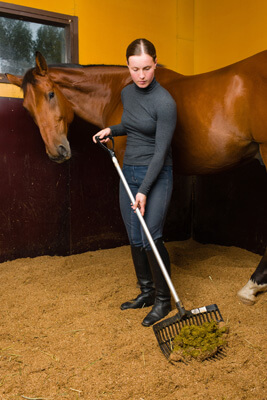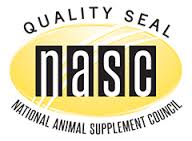Strong Immune System = Healthy Horse
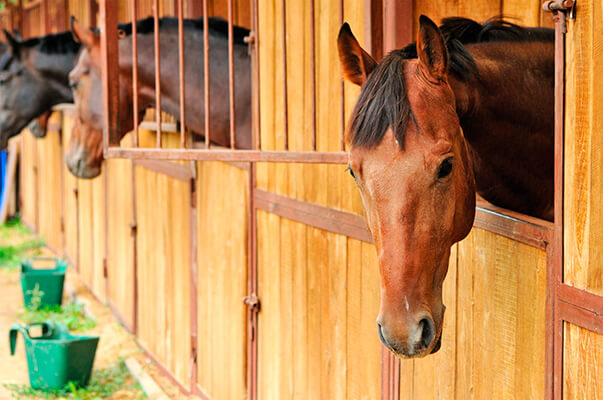
Remarkably complex and efficient, the immune system is designed to protect your horse from a host of potential dangers, ranging from viruses and bacteria to toxins and environmental threats. Read on to learn simple ways you can help keep it strong.
Stressed Out
One of the greatest risks to the equine immune system is stress.
As a conscientious horse owner, you’re probably thinking, Whew, at least I don’t have to worry about that. Think again.
You’re likely aware of common stressors, such as travel, hard training, competition and illness. What you may not realize is that even a “backyard” horse used for occasional easy trail rides can be dealing with stress.
Situations that can cause stress include turnout, particularly, if your horse is bullied by a more dominant pasture mate; being stalled most of the time; not being able to have contact with other horses; not being fed on a regular schedule or not being fed adequately; and being exposed to weather extremes.
“People don’t always realize their horses are being stressed because horses don’t always show stress outwardly,” notes Armon Blair, DVM, who has been a veterinarian for over 20 years and has been with Ocala Equine Hospital in Ocala, Florida, since 1997.
“Reduced appetite is a big sign of stress, as are lethargy and fever of unknown origin. A lot of times, the only change is the horse going off feed,” says Dr. Blair.
Next time your veterinarian pays a visit; it would be wise to talk with him/her about your management practices to see if there are ways you can reduce stress on a daily basis. This may include changing your training, stabling and turnout routines, as well as how and when you feed.
Routine vaccinations are a major factor in keeping your horse’s immune system strong.
“Weather changes can also stress your horse’s immune system, so you want to be especially careful of management strategies during these times,” Dr. Blair adds. “We often see more colic cases in our practice during hot weather. Horses do tend to tolerate cold better than heat, but cold and wet together is not a good combination.”
While you don’t want to insulate your horse 24/7 in a warm barn or under a pile of blankets, you need to make sure he has a way to get out of wind, rain and snow if he’s turned out during cold weather. Pay attention to the group he’s pastured with as well. A bossy horse might take over the run-in shed, forcing less dominant horses to huddle outside the shelter where they can’t get dry and/or out of the wind.
Importance of Vaccinations
Routine vaccinations are a major factor in keeping your horse’s immune system strong. Many horse owners don’t understand how crucial it is to establish and maintain a regular vaccine program. They mistakenly think that only show horses or breeding stock need such protection.
Granted, your horse may not need to be vaccinated against every equine disease out there, but your veterinarian can evaluate your horse’s exposure and what disease threats are most prevalent in your area. Then he/she can recommend an annual program that will best protect your horse.
As with most things in life, timing of vaccinations is vital. For example, a young foal is generally well-protected from disease, provided his mother was properly vaccinated in the correct time frame before foaling. The mare passes the protection of her maternal antibodies on to her foal through her colostrum when he nurses shortly after birth. Research has shown that those protective antibodies remain in the foal’s system for several months.
Once you start vaccinating the foal, you will need to give more than one dose of vaccine, at specific intervals, in order for his body to mount the best immune response. Older horses often need only one “booster” vaccine annually, but this varies by region. In areas where mosquitoes are a concern, your veterinarian may recommend vaccinating for certain diseases, such as encephalitis and West Nile Virus, twice a year.
Consult with your veterinarian to come up with an immunization program best suited for your horse. The American Association of Equine Practitioners’ website (www.aaep.org) has a helpful section on vaccination protocol.
Feeding & Supplementation
Just like a vehicle, your horse’s body cannot function well without proper fuel.
Dr. Blair emphasizes the importance of nutrition when it comes to keeping the immune system strong, and urges horse owners to pay close attention to their feeding programs. Select a feed designed for your horse’s specific age and use. In other words, broodmares and foals will require a different ration than that retired gelding in the pasture or a hard-working performance horse.
Start with good quality forage, and then balance the ration with a concentrate that meets your specific horse’s requirements.
“What I tell my clients is to feed a balanced commercial ration made by a reliable nutrition company,” Blair says. Giving the horse free access to a loose mineral mix is also wise.
Depending on your horse’s use and condition, you may want to consider an immune support supplement. Specific times when he might benefit from such a supplement are when he’s in training, working hard, traveling, recovering from sickness or injury, and facing changes in his routine and/or environment.
If you are considering giving an immune supplement to your horse, Dr. Blair recommends selecting a high quality product made by a reliable manufacturer.
You may want to talk with an equine nutritionist to get recommendations about specific ingredients that have been proven in studies to help strengthen the immune system. Then look for those ingredients on the label when you go to buy a supplement.
For example, glutathione is a vital antioxidant naturally produced in the body that fights free radicals, detoxifies, and helps the immune system do its job of battling infection. Glutathione can be depleted when the horse (or human!) is under stress, sick, eating poorly, taking medication, or simply getting older. Some supplements contain ingredients that stimulate the activity of glutathione. One such ingredient is Glutasyn, a milk protein isolate.
You can also offer immune support by providing a digestive supplement containing probiotics and prebiotics shown to help digestive function by supporting the beneficial bacteria necessary for intestinal health. Such supplements contain live microbials to help maintain the balance of microflora, as well as proper pH levels.
“By providing these for the body to utilize, you may help boost the overall immune system,” says Dr. Blair.
Whether your horse has a demanding competition schedule, or spends most of his time relaxing at pasture, his immune system is of the utmost importance. Take the time to review all areas of your current management and health care practices to be sure you’re giving him all the help he needs to stay healthy.
Life with Horses Newsletter
Sign up now to stay connected with free helpful horse care tips, product updates, and special offers.
Featured Products
Related Articles
NASC: What It Means to You and Your Horse
We live in a world where choices abound. Of course if you’ve been to your local feed store recently, you’re well aware of this fact. A walk down the supplements aisle can leave you with more questions than answers…if you don’t do your homework, that is. Fortunately, you have help making wise decisions when it comes to choosing a supplement for your horse...

